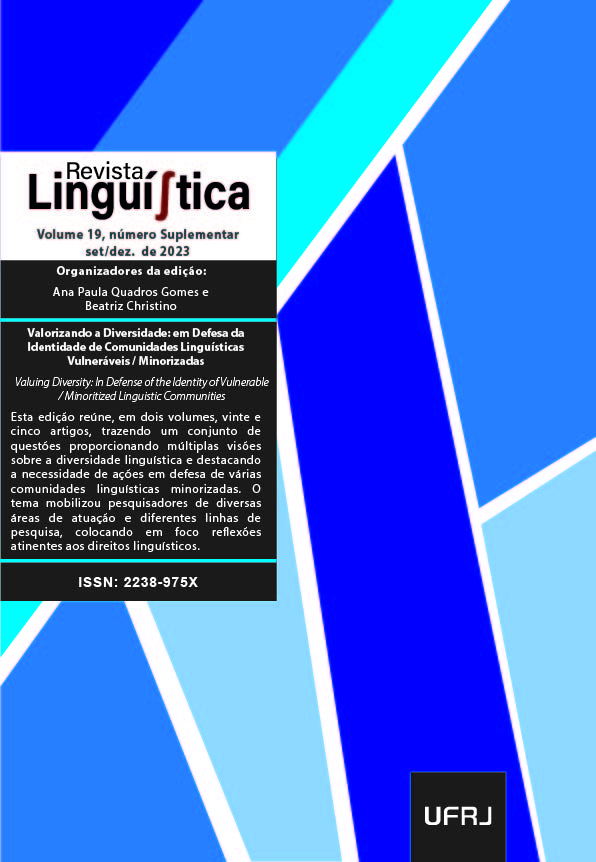Non-weird (psycho)linguistic endeavors: theoretical and metacognitive research with the Karajá of central Brazil
DOI:
https://doi.org/10.31513/linguistica.2023.v19nSup.a60014Keywords:
Lexical Processing, Sentence Processing, Decolonial Methodologies, Spoken Language Comprehension, Morphosyntactic ProcessingAbstract
Cognitive psychology and psycholinguistics have historically been dominated by research conducted within Western, Educated, Industrialized, Rich, and Democratic (WEIRD) societies, resulting in a disproportionate representation of this demographic in scholarly investigations. In this article, we report basic and applied research investigating order of constituents and morphological representation and processing conducted with speakers of Karajá, a non-european language of Central Brazil. The basic research findings contribute novel insights about the Karajá language, challenging certain purported language universals while corroborating others, thereby enriching the broader understanding of human cognition. The applied research explores methodological avenues to foreground indigenous voices and perspectives into the investigation process, acknowledging the potential drawbacks of employing WEIRD analytical categories when exploring non-WEIRD languages. We invite speakers of the language to the center of the discussion in metacognitive activities in which speakers use their insights to formulate hypotheses and create a theory for the grammar of the language. In line with the discussions in Maia (2022) in which eye tracking data was used at the Middle school and University levels, in these Karajá sessions, we also used qualitative eye tracking data as an aid to help Karajá language teachers to “go meta”, as put by Mahdavi (2014). We conclude by stressing that if we are to take seriously the importance of non-WEIRD science to the WEIRD world, there ought to be an increasing recentering of “participants” to more protagonist roles in research.
Downloads
Published
Issue
Section
License
Copyright (c) 2024 Revista Linguí∫tica

This work is licensed under a Creative Commons Attribution-NonCommercial 4.0 International License.
Authors who publish in the Revista Linguí∫tica agree with the following terms:
The authors maintain their rights, ceding to the journal the right to first publication of the article, simultaneously submitted to a Creative Commons license permitting the sharing with third-parties of published content as long as it mentions the author and its first publication in the Revista Linguí∫tica.
Authors may enter into additional agreements for the non-exclusive distribution of their published work (for example, posting in online institutional or non-profit repositories, or book chapters) so long as they acknowledge its initial publication in the Revista Linguí∫tica.

The journal Revista Linguí∫tica is published by the Post-Graduate program in Linguistics of UFRJ and employs a Creative Commons - Attribution-NonCommercial 4.0 International (CC-BY-NC).









